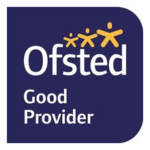School Context
School for Inspiring Talents (SfIT) sits within Acorn Education which is part ofthe Outcomes First Group – the leading provider of specialist education,delivering specialist services that enable all students to overcome barriers,develop and flourish, achieving their own personal goals. The school brings together both educational and clinical professionals to ensure a forward-thinking, evidence-based approach from neuroscience, child development and educational research.
Our key values are to:
C A R E + N U R T U R E + I N S P I R E
SfIT is a trauma informed, independent day school for students aged 5-16 years old with Social, Emotional and Mental Health (SEMH) difficulties. All students have complex life histories having experienced significant trauma and multiple Adverse Childhood Experiences (ACEs) and all having an Education, Health and Care Plan (EHCP).
Students are placed with us by referring Local Authorities (LAs) joining our school at various points during their primary or secondary education; usually because their needs are no longer able to be accommodated within the framework of mainstream schooling.
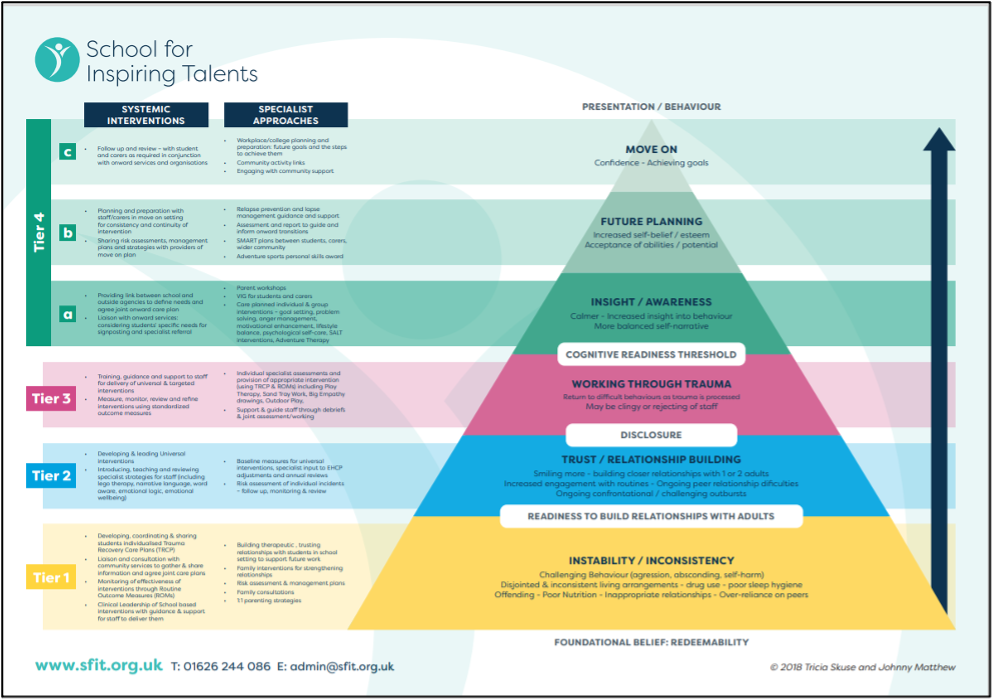
Trauma Informed
It is important to understand that all our students will have experienced toxic stress (occurring when someone experiences strong, frequent and/or prolonged adversity). Extensive research proves that excessive or prolonged activation of the stress response systems in the body have a cumulative effect, derailing healthy brain development.
Damaged, weakened systems and brain architecture, impacts upon learning and behaviour, as well as general health across a student’s lifespan.
For many of our students when they arrive at SfIT, they have an inner view of themselves and their needs as worthless and shameful with a negative view of their life chances. This is often caused by the insecure early attachments neglect, and abuse they have experienced, compounded by a loss of those they care about, including having experienced their previous educational settings being unable to understand or meet their needs appropriately.
Due to this, SfIT offers individualised, integrated therapeutic/clinical carewhere needed and a trauma informed education overseen by a team of trained,professional staff. First and foremost, our key role is to build trusting,supportive and responsive relationships with our students; with research alsoindicating that such relationships, with caring adults, can further prevent orreverse the damaging effects of toxic stress response.
We use the Trauma Recovery Model (TRM) to inform and underpin our pedagogical approach, ensuring a holistic education for our students that meets their specific needs.
Alongside this, we use trauma-informed, attachment aware practice and relational behaviour management work as fundamental to our school ethos and culture, embedded within our curriculum offer to help students learn to manage their emotions and behaviours, ensuring a pathway to success in the future.
Curriculum Intent – Aims
We want our students to engage with, and stay in, education; motivating and inspiring them to become confident individuals, successful learners, and thoughtful citizens. Our role is to ensure students have the emotional stability and richness to grow; and where needed, once ready, a supportive therapeutic experience with an accessible curriculum and pathway to success in the future – be that academic or vocational.
At SfIT we aim to provide a small class-based learning environment where every student is seen, heard and truly matters. Our curriculum enables students to actively engage in authentic, real world and personally meaningful learning; with professionals working together to ensure a trauma informed holistic approach – supporting all to be the best that they can be.
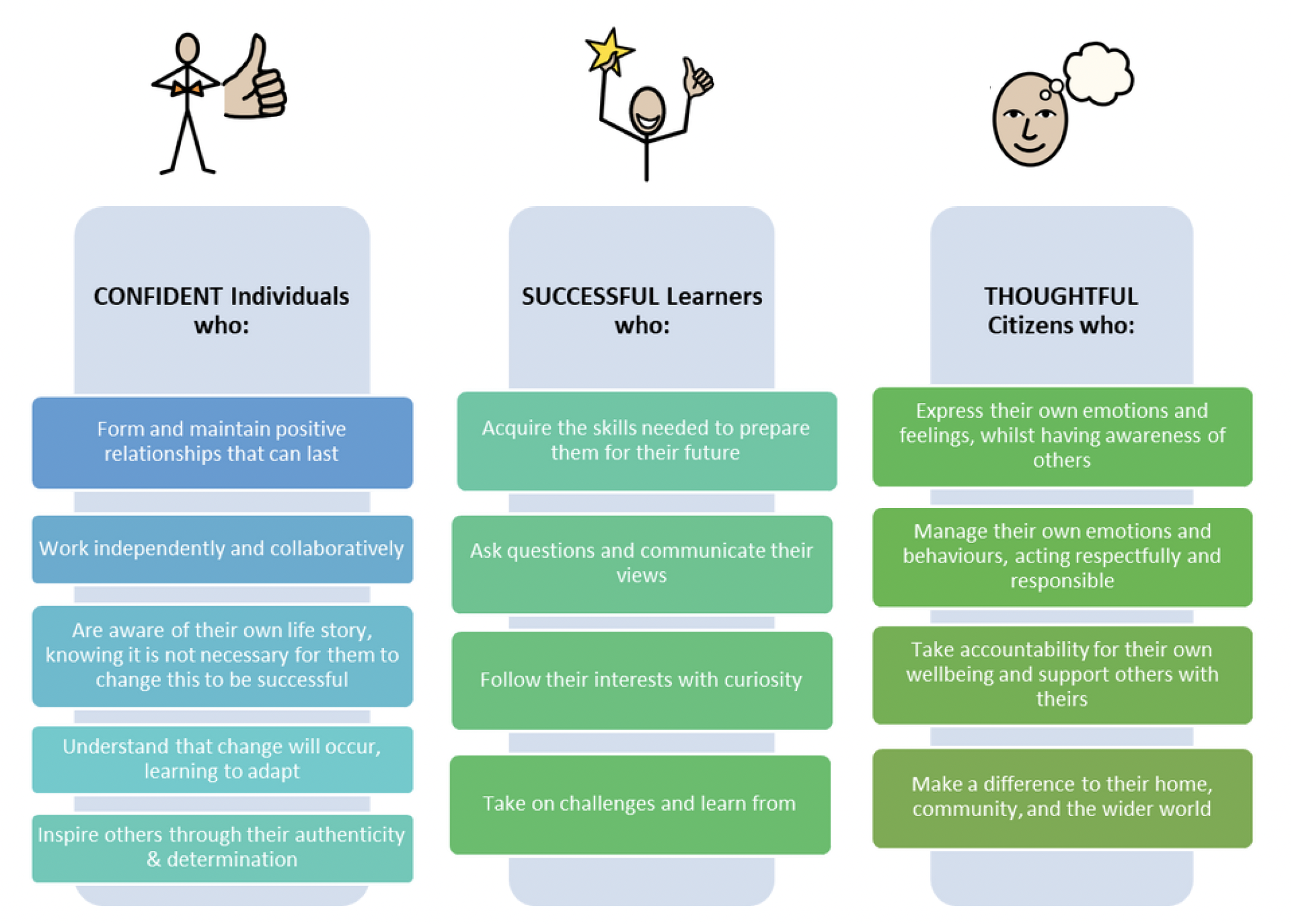
Curriculum Intent – Learning Principles
To help students achieve our learning aims we reinforce our school learning principles annually. These are:
- Being Respectful, Ready and Safe
- Having Fun, Being Challenged and Inspired
- Being The Best That We Can Be
Throughout the year we also focus on the key dispositions needed to realise this. Our youngest classes will always start by concentrating on:

As students progress, they move on to focus on our six key dispositions – there is a focus one per half term until students understand them:
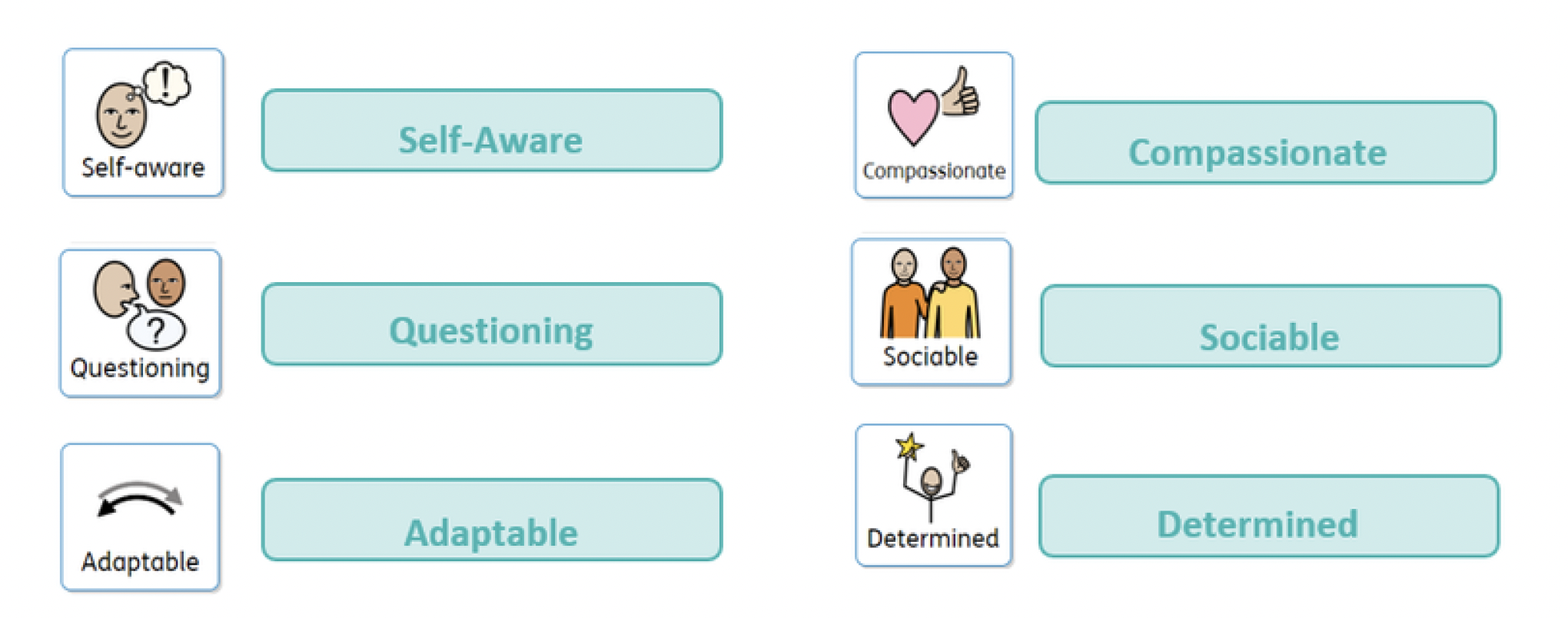
Curriculum Intent – Implementation
At the heart of our curriculum are our three core values, to Care, Nurture and Inspire. This is because we understand the impact of early trauma and how repeated traumatic experiences and insecure attachments in childhood have a devastating effect upon a student’s development: cognitively, socially, and emotionally.
The TRM is fundamental to our curriculum model, taking its foundational belief of ‘redeemability’ as our cornerstone – every child has a fresh start at our school and every day from then on. Students who have suffered complex trauma and have had disrupted experiences of education need an individualised approach that takes into consideration their underlying needs, presentation, and behaviour, adjusting learning, systemic interventions, and specialist approaches to where they are in their journey towards being able to move on and achieve their goals.
Because of this, our curriculum is a spiral, organised to take into consideration which tier of the TRM students are currently working at.
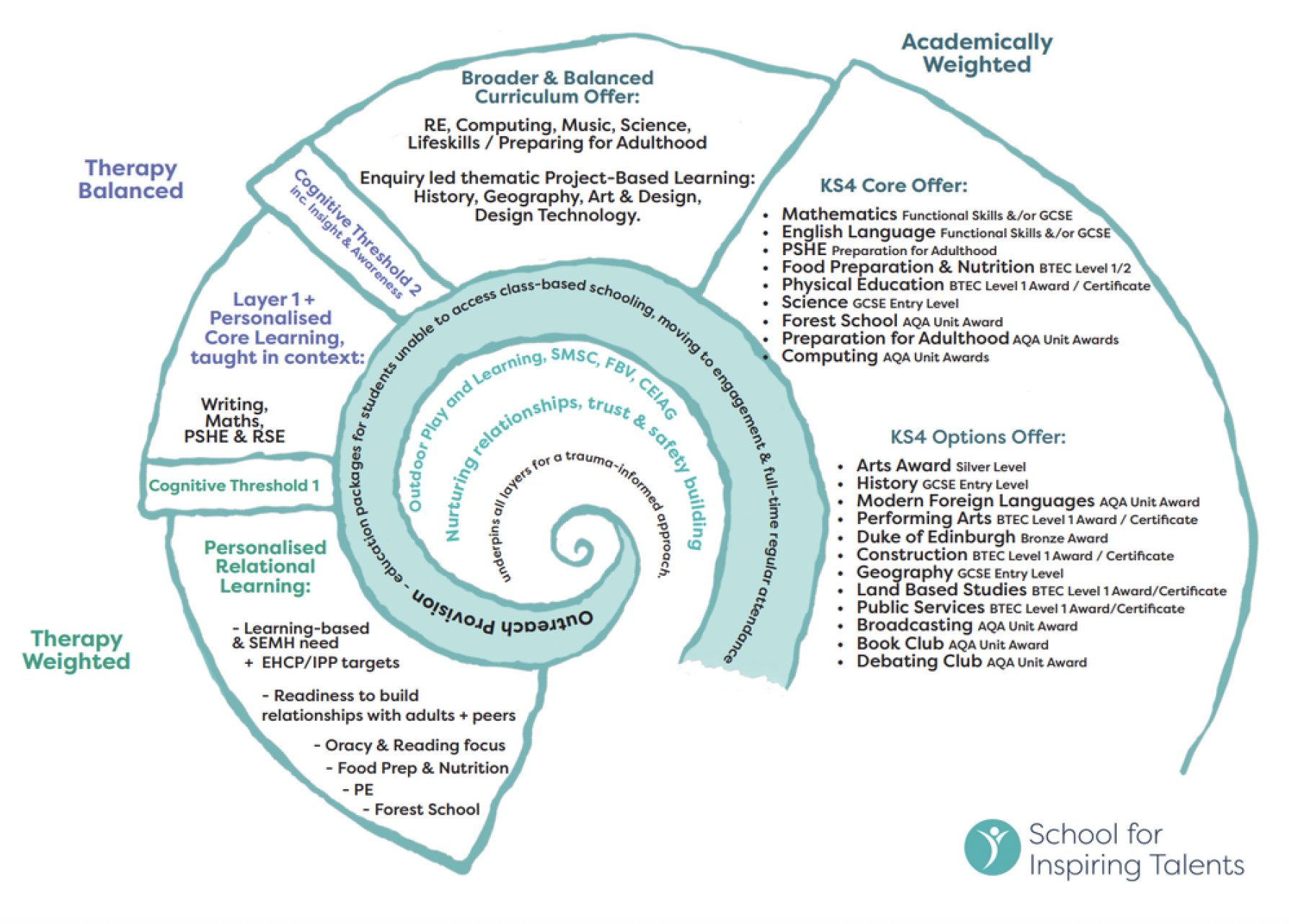
As theories of child development, attachment and neuroscience indicate and the TRM outlines, we understand that to be ready to learn, in any capacity, students first need to feel secure in school.
At all times our expert staff show students that they really care, making this explicit – nurturing relationships, building trust and safety. This, therefore, is at the centre of the spiral, always underpinning our curriculum, whatever tier of the TRM a student is operating at.
What a student’s bespoke package of learning may include (e.g. subjects studied and how) and looks like, is shown through our curriculum spiral’s curve. This curve is a continuum – as learning does not start or stop at any point.
- Students working at the lower level of the TRM who have not yet met Cognitive Threshold 1, will follow a Therapy Weighted Curriculum, focusing upon personalised relational learning linked to their EHCP and Individual Provision Plan (IPP) targets.
- Students meeting Cognitive Threshold 1 may transition to a Therapy Balanced Curriculum.
- Students gaining insight and awareness, reaching Cognitive Threshold 2 may transition to an Academically Weighted Curriculum.
Students will not always move through the tiers of the TRM in a sequenced and linear fashion. Dependent upon the external factors within a student ’s life, they may move back and forth between tiers and thus could also do so on the curriculum curves continuum as we strive to adapt learning and teaching to meet the student’s current needs. This is especially the case if a student re-enters crisis after a period of stability.
All students start with Personalised Relational Learning, building readiness to engage with key adults and selected peers.
Staff build relationships through play and activities, and carefully plan to create ‘hidden learning opportunities’. These are focused on EHCP / IOPP targets for each child. This is a Therapy Weighted stage, often with a significant amount of clinical time.
However, all students will always study:
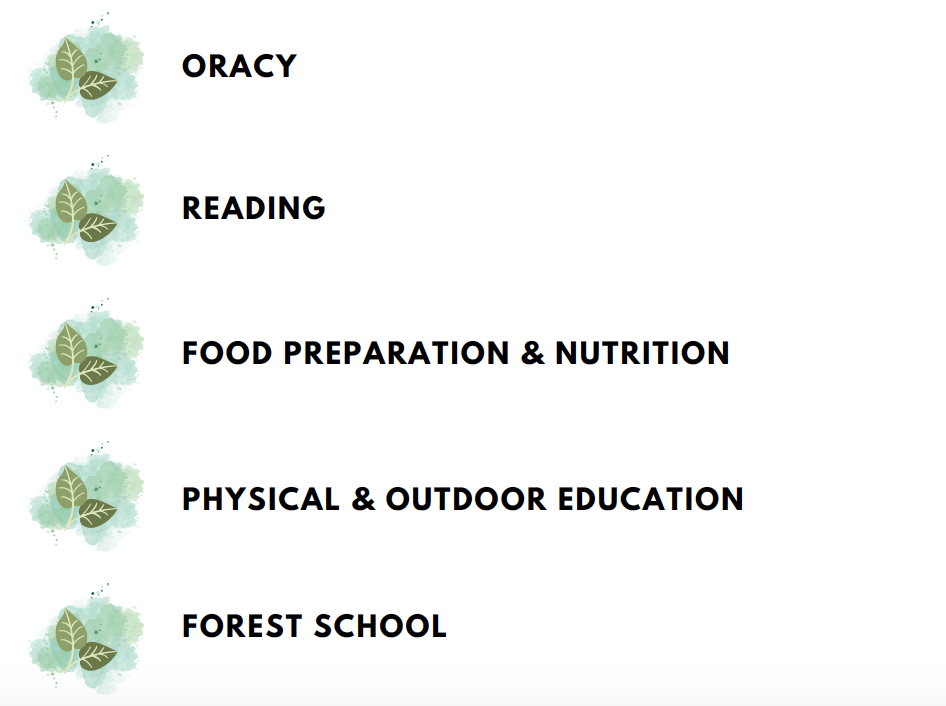
Outdoor Learning and our Local Curriculum
We follow an evidence-led approach to outdoor learning and play, forming a key part of our curriculum. Learning outdoors contributes to raising standards, improving students’ personal, social and emotional development and directly links to increasing young people’s cognitive ability and attention.
Our students benefit from being able to access a range of activities within our school grounds and in the wider community including forest school, bush craft, swimming, kayaking, climbing as well as taking part in planned visits and school trips. Providing these educational experiences using the outdoor environment helps students to develop their confidence, social skills, communication, teamwork and knowledge of the world around them.


